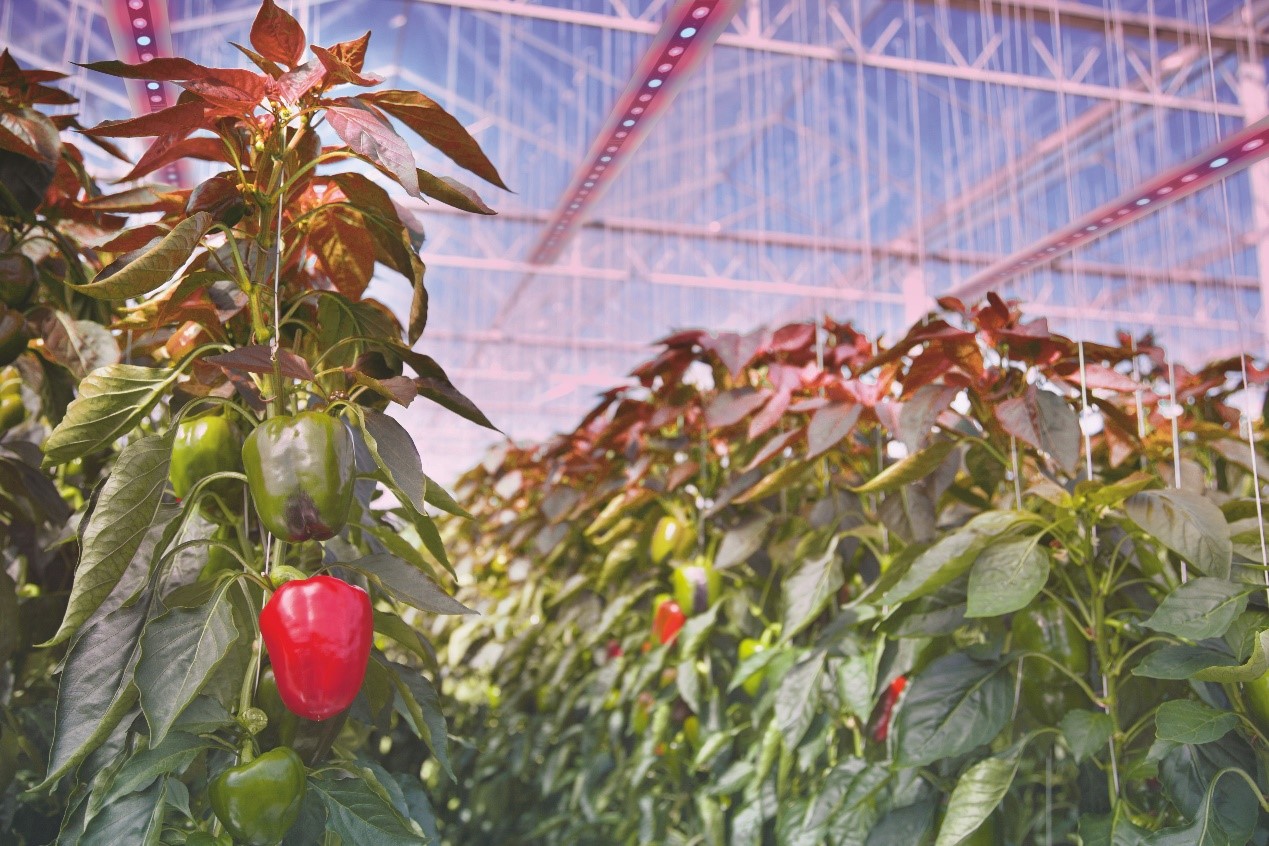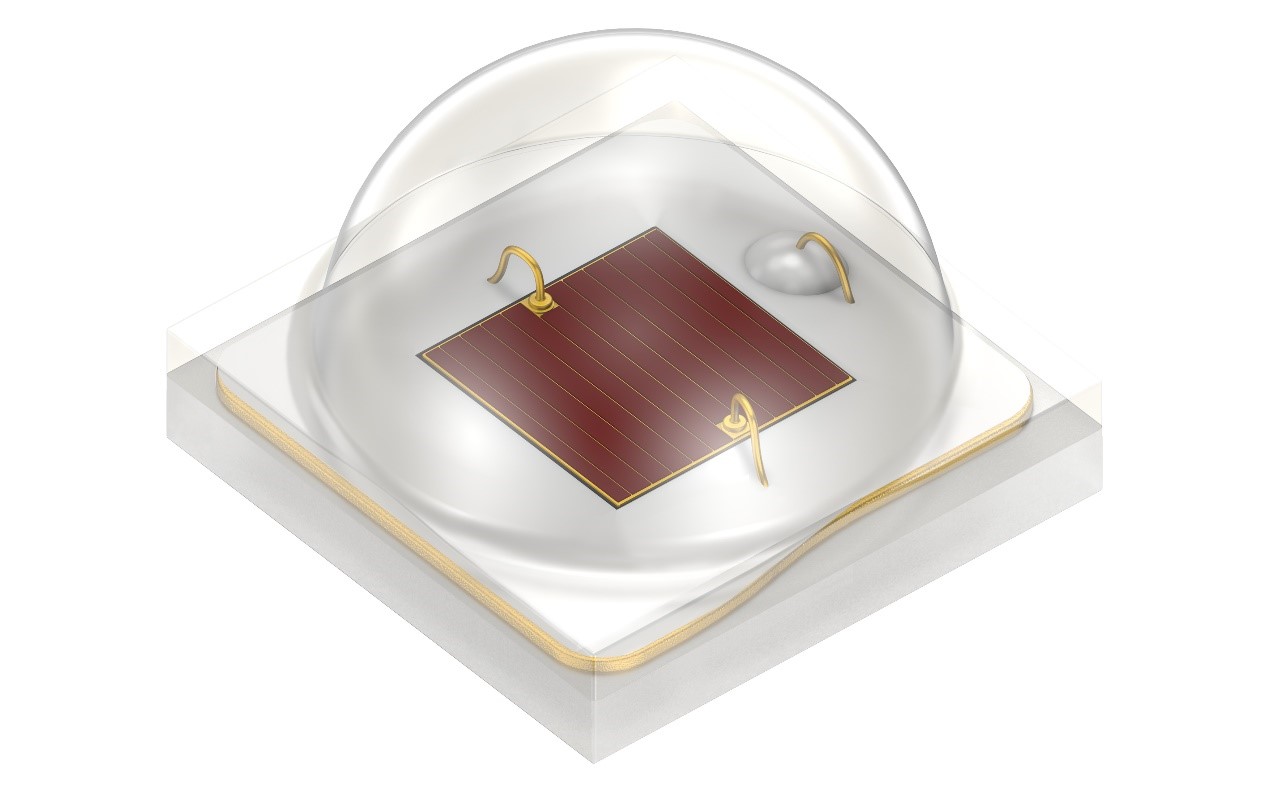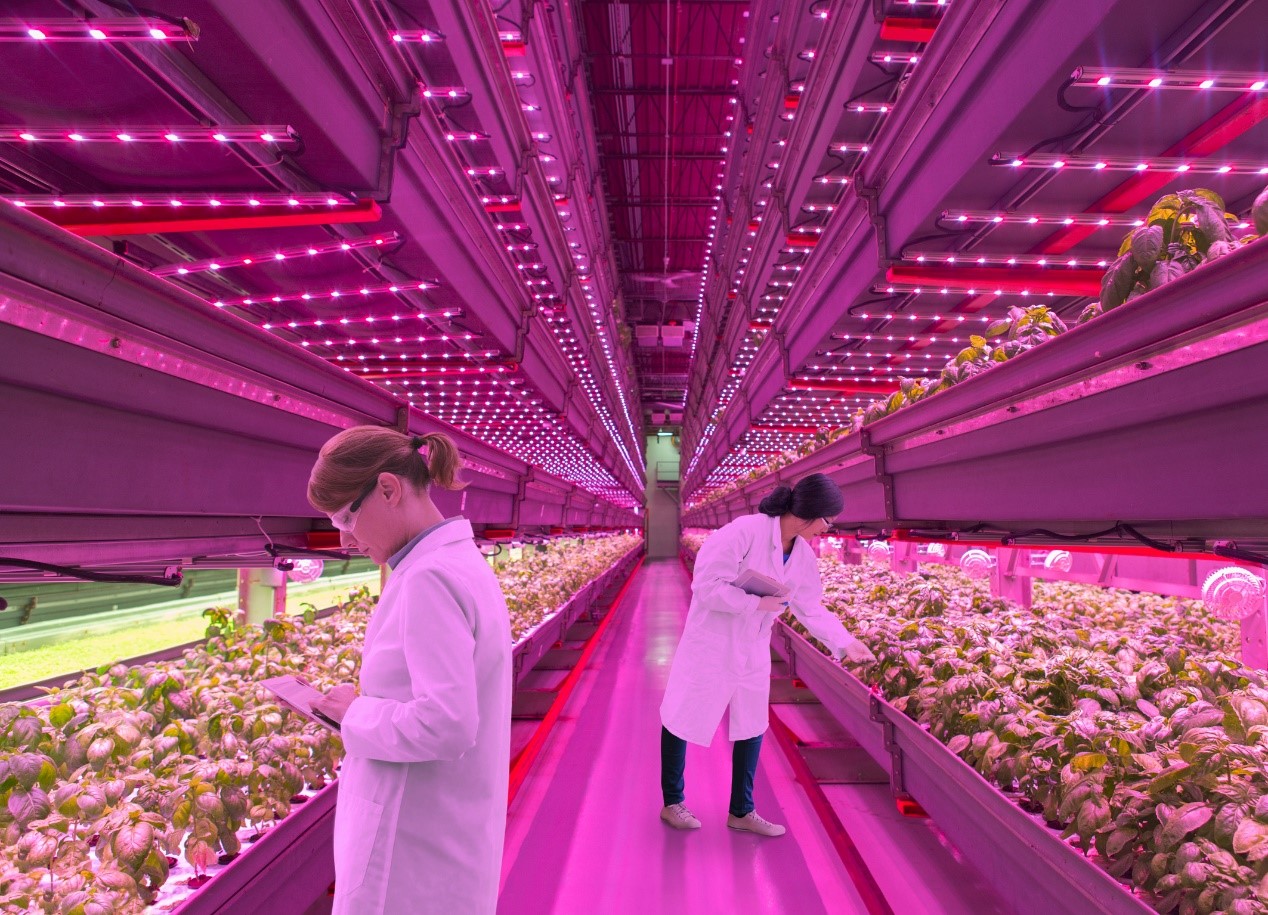Since LED technology became mature enough for lighting applications, it has soon entered a plateau period and attracted players across the globe. The industry then turned into a battlefield with low price products and flat profit. Several leading lighting companies including GE, Osram, Cree and others, enlarged their focus into other special lighting applications. Horticulture lighting is one of their targets.

(Image: Osram)
Adding artificial light sources to help crops to grow has a long history in horticulture but the use of LEDs for such applications offers completely new possibilities regarding energy consumption and luminaire design. Comparing to conventional light sources, how can LED technologies bring breakthroughs for horticulture lighting? And what are the current trends of the applications?
To answer these questions, LEDinside interviewed Osram Opto Semiconductors, the leading LED supplier of the global horticulture lighting market to learn more. Alessandro Cilano, Head of Global Marketing – Product Line Illumination at Osram Opto Semiconductors shared his insights towards technology features and the market trends of horticulture lighting.

(Alessandro Cilano/ Head of Global Marketing – Product Line Illumination at Osram Opto Semiconductors; photo credit to Osram)
Osram Achieves Industry Leading Red LED Efficacy, Securing Its Position
Firstly, Cilano noted that comparing to conventional light sources such as High Pressure Sodium and halogen lamps, the advantages of LED technology in horticulture lighting are similar to other lighting applications, covering better energy efficiency and longer lifetime. In addition, the compact size of LEDs enables more flexible fixture designs.
“What makes LEDs stand out from other light sources is the capability to optimize the light spectrum,” stressed Cilano. He explained that similar to human centric lighting, LED spectrum is key for horticulture LED lighting can also provide the exact wavelengths for plants to improve their growth. LED grow lights can deliver desired spectrum to cultivate crops into certain shapes, colors or even with enhanced nutrition.
Red light with wavelengths between 640 to 700 nanometers (nm) is recognized as key spectrum for plant cultivation. Among which, the wavelength of 660nm, called Hyper Red by Osram, is the most critical factor for improving plants’ growth.
Osram is able to provide the world’s best efficacy with its latest 660nm LED, the Oslon Square Hyper Red, making it the leading supplier in the industry.

(Oslon Square, GH CSSRM4.24; photo credit to Osram)
Speaking of the Oslon Square Hyper Red , Cilano underlined its outstanding efficiency values of 73% when operating at 700mA with an output of 1035mW.
Improving the efficacy of red LED has always been a challenge for the LED industry. Based on its over-40-year experience in LED technology development, Osram has transferred its capabilities into horticulture lighting and built red light products with high conversion efficiency. These solid strengths enable Osram to come up with a comprehensive portfolio and customized solutions for horticulture lighting, with LEDs in the high-power as well as mid- and low-power range which allow to address both professional use cases with the highest requirements and cost-effective luminaire designs.
Agri-tech as New Target for Investment, Driving Demands for LED Grow Lights
Environmental problems caused by global warming, climate change and population concentration have forced people to figure out sustainable ways to produce food, resulting in the booming of innovative agri-technologies. In metropolitan areas or places where the weather condition is more extreme, projects of establishing hydroponics vertical farms and plant factories are rising and become a focus of many countries and cities around the world.
The recent city and country lockdowns due to the COVID-19 pandemic further pushed many countries relying heavily on food import to develop indoor or vertical farming products in order to secure their food supply. Demands for horticulture lighting hence achieved another peak.
By the end of the third quarter of 2020, the UAE had announced their intention to invest US$ 10 billion to initiate vertical farming program and many other fund raising stories were reported by agri-tech startups including Freight Farm from the U.S. and Infarm from Germany.
Cilano addressed, “The industry is witnessing a rapid growth of the horticulture lighting market and we are glad to provide our promising technology to support the growth.” Today Osram Opto Semiconductors' Horticulture business is already growing faster than the market.
Osram has worked closely with leaders focusing on producing horticulture lighting fixtures. In addition to providing LED products with the best efficacy in the industry, Osram also helps its clients to overcome different issues, like power integration, wavelength uniformity improvement, and fixture design upgrade to leverage the advantages of its photoelectric devices.
In-house Technology Enables Desirable Combination of Red and White Light to Support Indoor Farming
Perceiving the growing trend of indoor farming, Cilano indicated that unlike greenhouse lighting which requires majorly red light, indoor farming activities like vertical farming and plant factory also demand white light compensation as the plants do not receive natural sun light at all. Therefore, white light LEDs have also been adopted for horticulture lighting.
Cilano pointed out that a combination of red and white light for indoor farming solutions meets the different requirements of the plants.

(Image: Osram)
“With Osram’s expertise in automotive which contributed to develop highly efficient red light LEDs, we can turn these experiences into developing solutions for horticulture lighting. Besides, one of our most critical assets is that our products are created with our in-house design and manufacturing facilities with proprietary technologies,” highlighted Cilano. Osram offers vertical integrated LED technologies from chip design to package, providing guaranteed performance and excellent efficacy with its Hyper Red products.
Seeing surging growth in the market, Osram will continue to collaborate with its partners in the industry. Osram’ LED products have been implemented in vertical farms in China, the U.S., Italy and Germany and are expanding to new projects across the world.
At the same time, Osram continues to optimize the efficacy of its products to make sure that it will keep its position as the leading LED supplier in the horticulture lighting market. The company plans to launch more innovative products in the near future and expects the market to thrive.















